
The easiest way to find keywords in less than a minute & for free
Researching the keywords for the topic you want to write about increases your chances to rank higher in Google search. Therefore, a quick keyword search should be the first thing before writing a story itself.
The tool I’m about to show you is not a typical keyword tool, but using it for just one minute gets you impressive results, even if you don’t know anything about SEO.
It’s called Google Autocomplete. Yes, that’s the search bar you’re using every day without realizing how helpful this can be for content creation.
I’ll share with you,
- what is Google Autocomplete
- how to use it to find the best keywords
- techniques that provide you with a lot of content ideas
- which word combinations come with the best keywords
A few quick facts about Google Autocomplete
Every time you write any queries into the search bar, Google autocompletes your search based on predictions. This is especially useful if you’re typing words on smaller-screen devices like smartphones or tablets.
- These predictions come from real searches that are relevant to the words (or characters) you typed in.
- Google doesn’t suggest during your search new types of search — it only shows you the ones that have been made already.
- Google says their autocomplete tool cumulatively reduces typing time by 25% and saves around 200 years of typing time per day.
Before you start
Keep in your mind that predictions in your Google search depend on the country you’re in. The previous searches you made have an impact on the future predictions Google provides you.
To get the best results
- log out from your Google account, or use incognito mode to have a clean history before you start searching
- if you don’t want to get results (only) from the location you’re in, use VPN or change your location in Chrome settings (check the more detailed article here)
Start your search
Let’s say you write a story about the effects and benefits of daily meditation. You might have a personal experience with this and you want to share your story.
But maybe you don’t know anything about keywords, SEO, or digital marketing. So how do you make your story stand out from other stories?
The process I’m going to show you takes literally just a few minutes, but you’ll get strong points for your next story.
Open your Google search and type in your main idea for the story. In this case, meditation benefits.
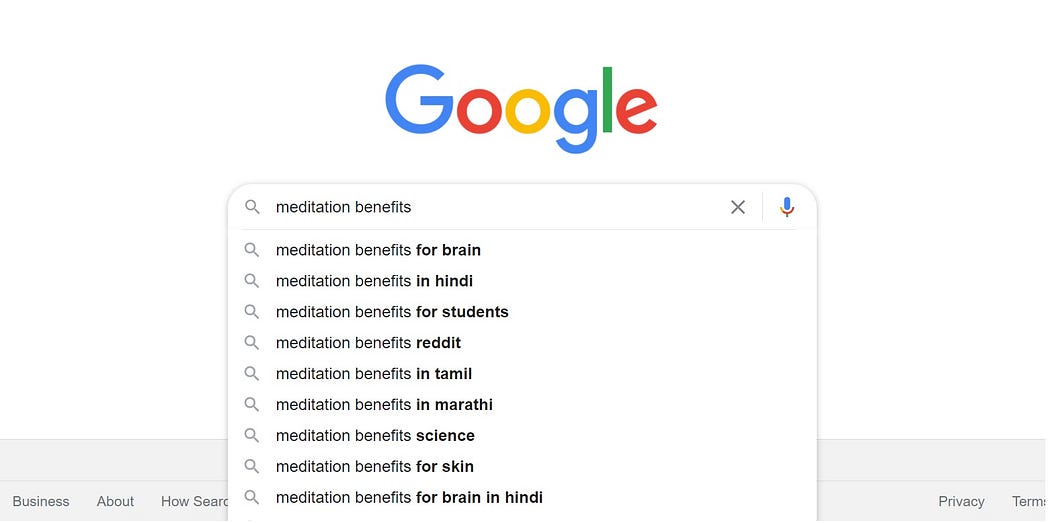
Now you have some idea what people are looking for when it comes to the topic you’ve chosen. They want to know about benefits for the brain, for skin, science-based benefits, etc.
Let’s see what’s going to happen if you use the word effects instead of benefits.
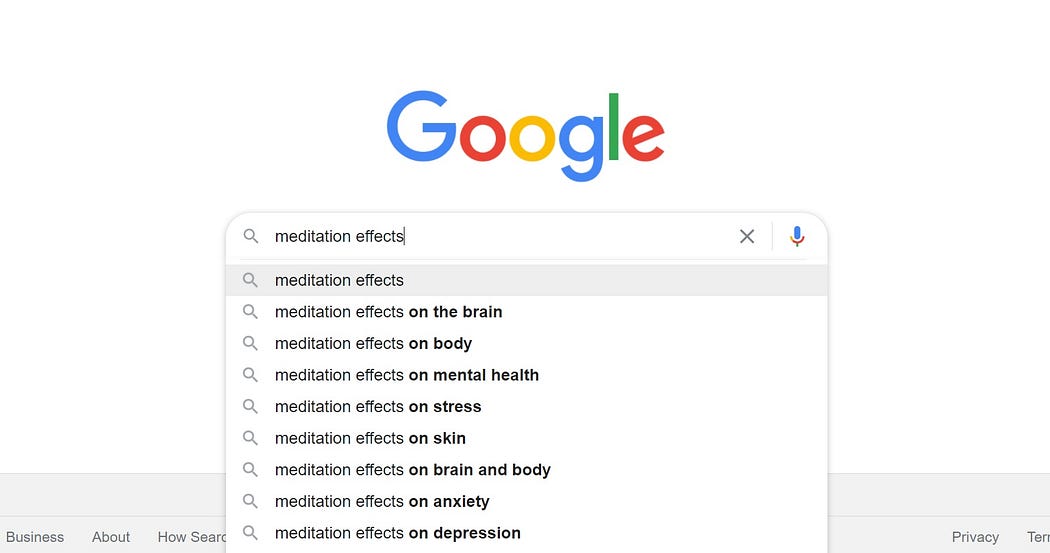
You see that words like brain and skin are present in this search as well, so these things should definitely be included in your story. Other topics that people are interested in are mental health and mental issues like stress, anxiety, or depression.
All of these keywords create a great framework for your article. Now you can make bullet points for your story:
- a short introduction on meditation
- science-based facts about mediation effects & benefits
- effects & benefits for physical health
- effects & benefits for mental health
If you have any personal experience with the points written above, mentioning it in between the lines will improve the credibility of your story.
You can either write a story that covers all the features in general or a story that dives deeper only into one of them.
To add some extra information to the article, search only for the general term meditation.
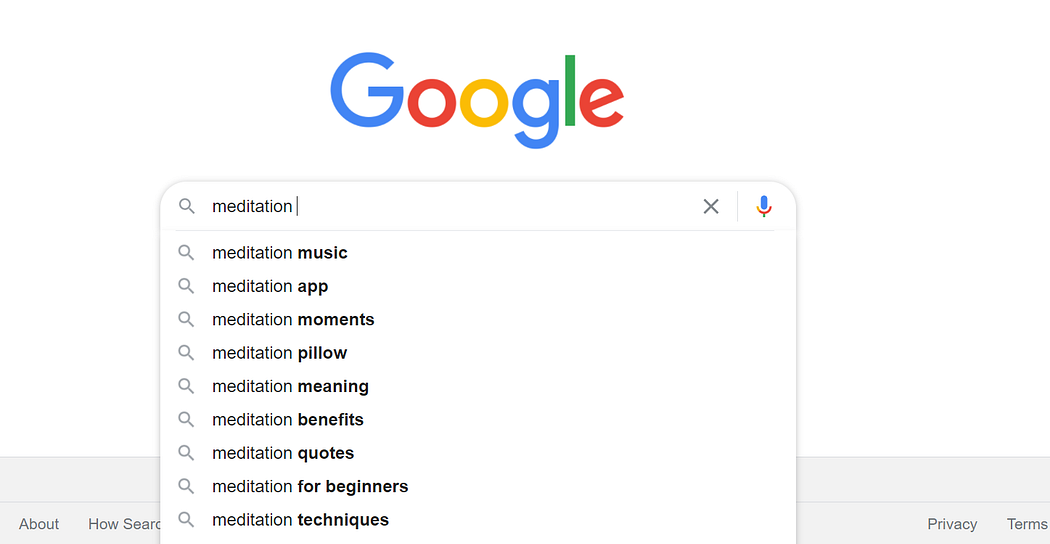
You get an overview of what else should be a part of the story. For example,
- use meditation quotes throughout the story to make it more emotional
- at the end of the story, mention apps, free & paid, to make your story actionable for a reader
- check for some YouTube channels with free meditation music to refer to
- explain how beginners can start with meditation practice
Get deeper results using “_”
You already made a search using the words meditation benefits and meditation effects. But to get a deeper overview of the topic, you can type in these 3 signs “_” while you search. You get something like this:
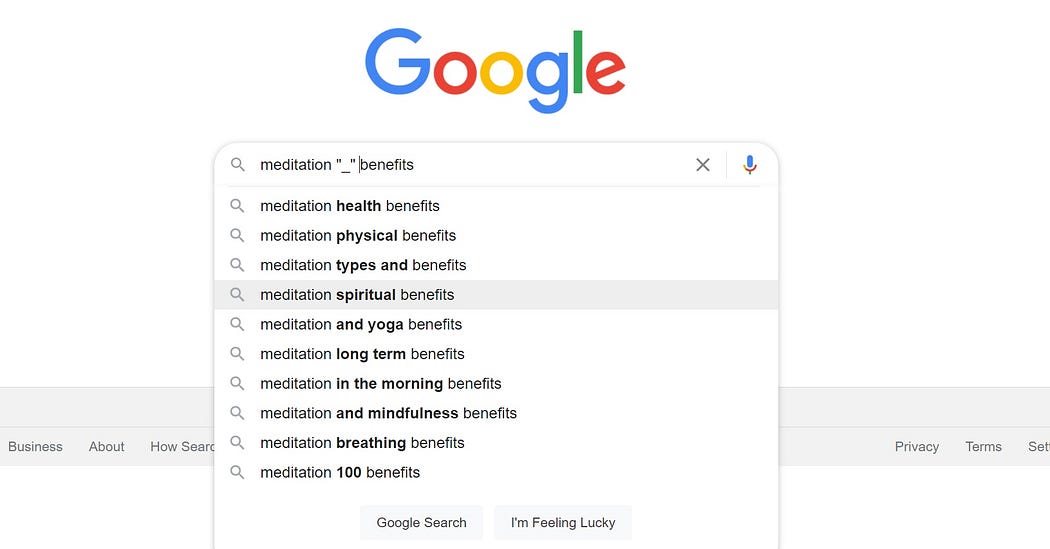
The results from this search are a bit different from the first search when you used the phrase meditation benefits. In this case, Google autocomplete will fill in the blank between the two words you typed in.
If you put “_” in front of the term meditation benefits, you get different results again.
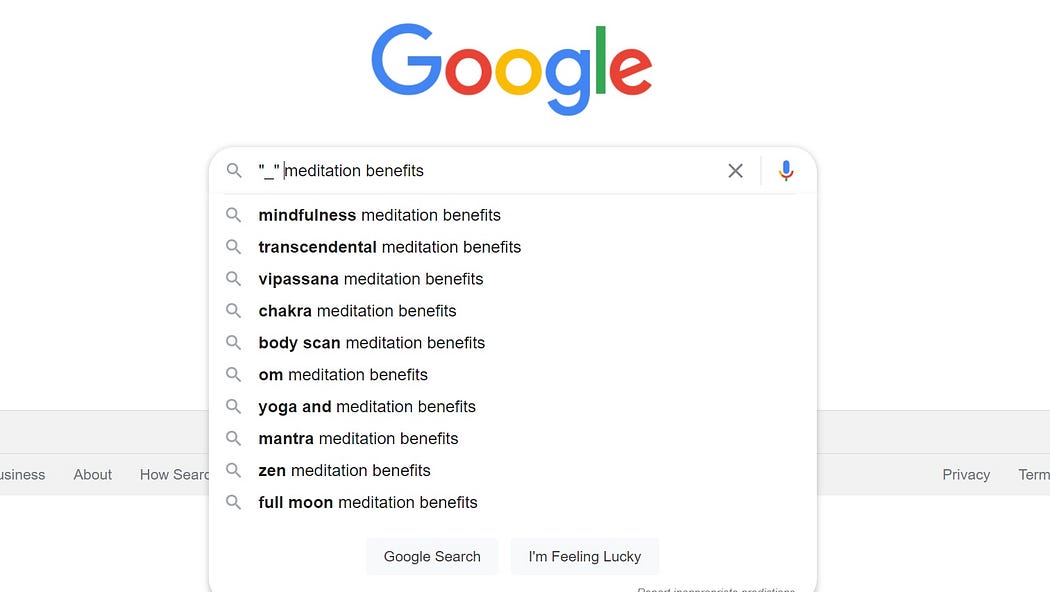
This way you find all the possible variations of Google search on a particular topic. If you can combine them well, your story will easily stand out from other stories.
Use action verbs to understand your reader
Type in the topic you want to write about and combine it with some common action verbs (is, are, can, be, etc). Again, a bunch of great ideas to think about.
Use verbs logically working with particular words in the grammatically correct order. Google will even autocomplete for you question words like what, who, where, and so on.
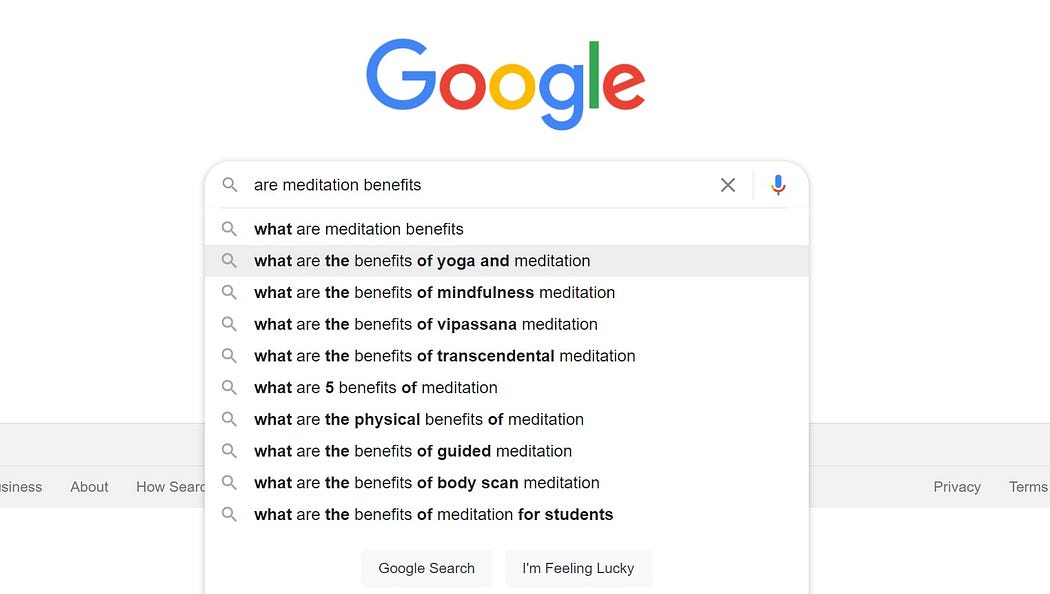
Use “and” & “or” to find the right combination
In this case, you will figure out what combinations have people on their minds when searching for some facts. Using a word and also helps you find related topics.
For example, after typing in ‘meditation benefits and’, you can see that people want to know not only the benefits of meditation, but the side effects, risks, or techniques as well.
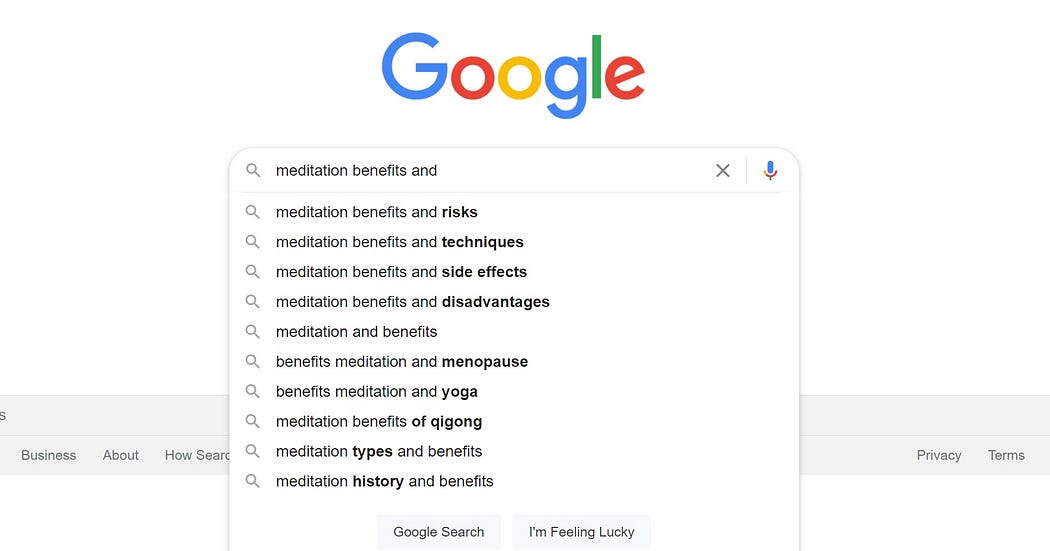
Use question words to make great answers
Using words like what, when, where, why, or how provides you with solid fundamentals for creating stories that cover all possible answers to the reader’s questions.
For instance, if you’re creating a how-to article on meditating, check first what kind of meditation people want to learn. Is it for students, beginners, advanced audiences, or stressed CEOs?
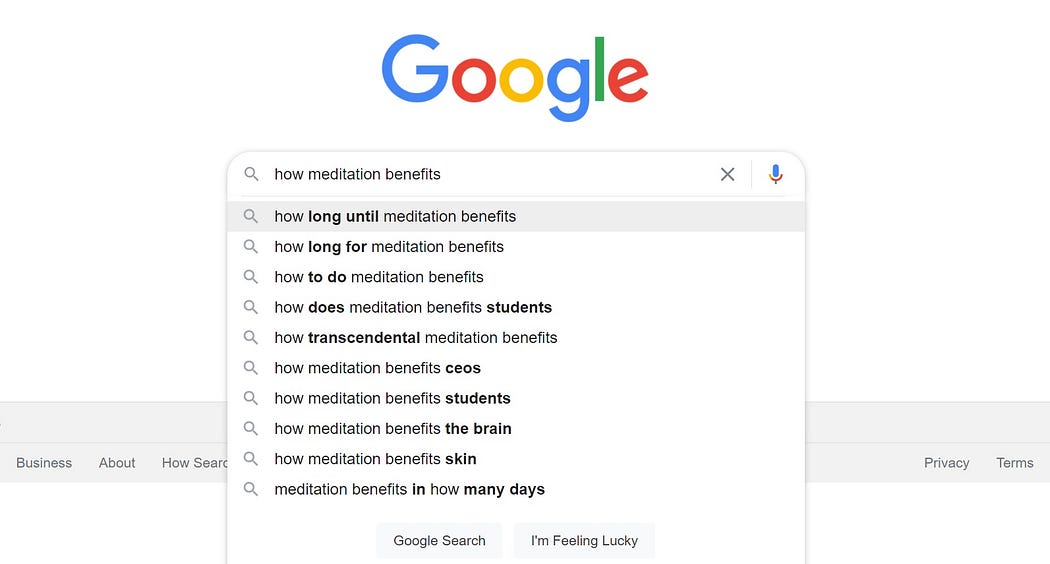
Conclusion
To wrap the whole process up, follow these rules:
- use incognito mode and turn off your location to get the best results not impacted by your previous search history
- with the first search, write down only the topic you want to cover, and based on autocomplete results, create a framework for your story
- if possible, use your keywords with signs “_” to get deeper results
- use keywords with the combination “and” or “or” to find other topics relevant to your main topic
- use action verbs to understand what answers are readers looking for
- use question words to know what problems should your story resolve
You can always run your keywords in SEO tools like Ahrefs or Ubersuggest, but if you’re a beginner or just not interested in learning SEO techniques, using Google autocomplete is definitely enough.